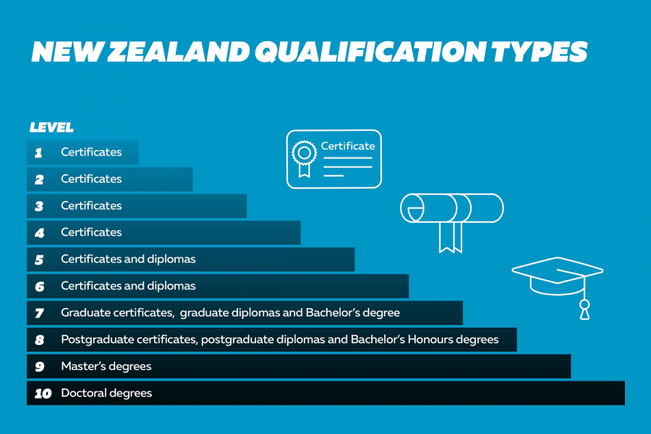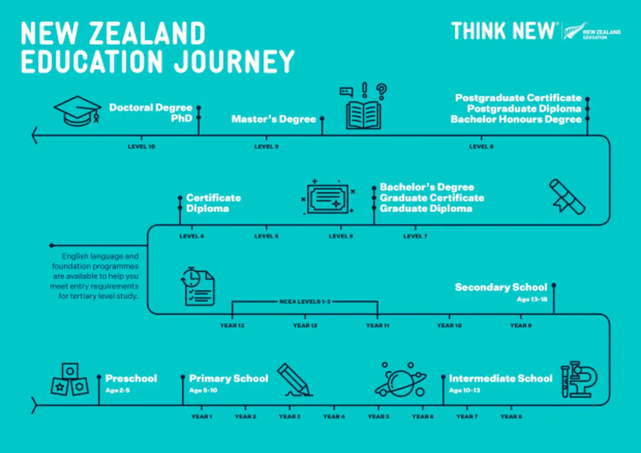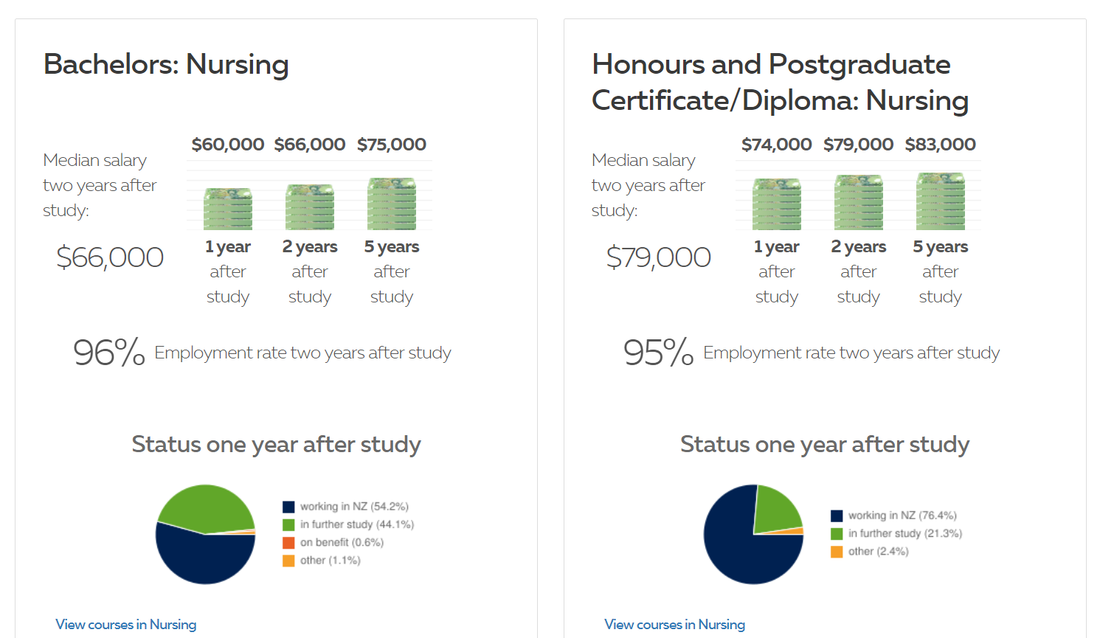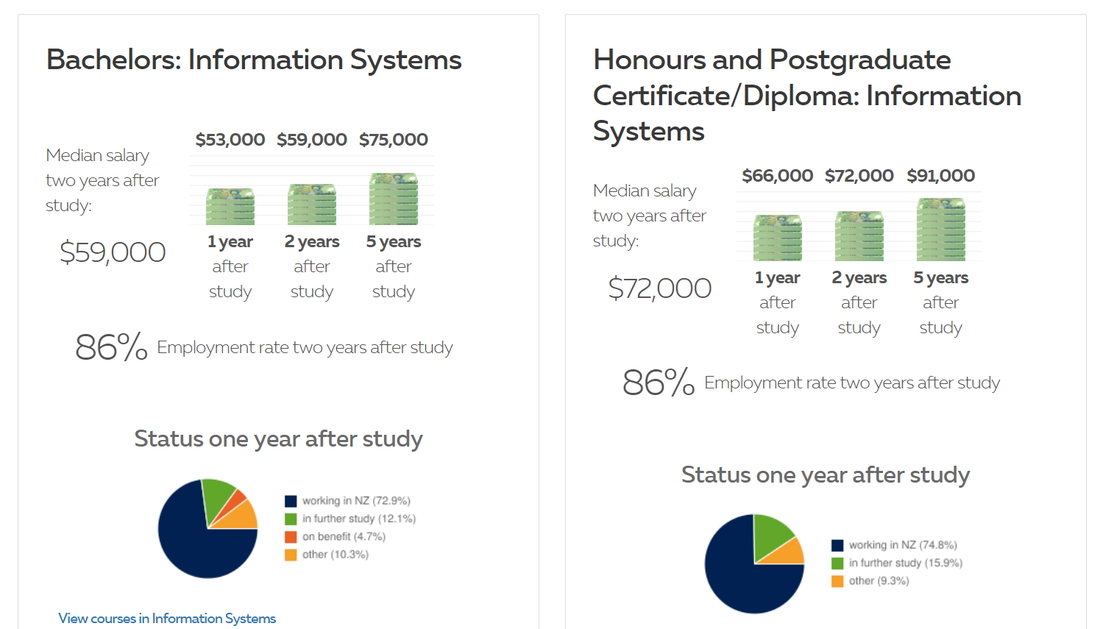What Employers Want - Know Where Your Qualification Fits on the NZ Qualification Framework
Maximize your career potential with a clear understanding of the NZ Qualifications Framework (NZQF). Learn how it can help you make informed study choices, potentially save time and money, and position yourself advantageously in the job market. This guide walks you through the NZQF levels, their implications, and how they relate to your career progression.
Updated 29 May 2023
Summary:
- Checking the NZ Qualifications Framework (NZQF) could save you time and your 'study money' because you'll be starting at the right place and could prevent you from 'over-studying'.
- Our guide is published to help you understand the workings of the NZQF and its implications for your educational journey and career prospects.
- We explain how to leverage the NZQF to streamline your career path, save time and money, increase your competitiveness in the job market, and understand the different NZQF qualification levels and how they correspond to various career stages and job requirements.
- Our guide is designed to help you make an informed decision about your study, whether you're a Year 13 student, a school leaver, a university student, or a professional seeking a career shift.
NZQF Explained:

|
What is the NZQF?The NZQF is a measurement system which benchmarks specific skills and knowledge so that everyone understands what skill set or knowledge a person with certain qualifications is likely to have developed. The NZQF is administered by our NZQA which explains how qualifications (Level 1 to Level 10) can be achieved in different settings including the workplace and education institutions where learners can achieve in ways most suited to their educational, work or cultural needs and aspirations. The levels on the NZQF explains what level you have been able to achieve in various settings, educational and industry.
The NZQF explains the difficulty, complexity and depth of diplomas or degrees at various Levels starting from;
The NZQF, monitored by NZQA, is fundamental to many levels of NZ’s education system and compares us to internationally recognised standards. The NZQF allows us to plan lifelong learning to increase our potential through professional development and acquiring qualifications. |

|
Who Uses the NZQF
|

|
Certificates - Did you know there are more than 4 levels of Certificate in our 10 level NZQF?
|

|
What about School Leavers?
|

|
What if I have no qualifications and left school a long time ago?You can be included in the NZQF and in this case you need to talk to a Polytechnic, Te Pūkenga, Te Wānanga or Private Training Establishment (PTE). Universities have special programmes and foundation courses for students over 20 years of age wanting to return to University. Your work experience or any on-the-job training may favour your entry into courses, in some cases. Some courses can be offered online.
The diagram below shows the NZQF from StudyWith NZ . |

|
Are you at University? Understanding NZQF during and after a Bachelor's degreeAfter graduating with a bachelor's degree at Level 7, if you want to undertake more study, have a look at the level of post-graduate courses on the NZQF and the Uni website. If you already have a degree but want a career change or want to work outside of the scope of your degree then post-graduate study might help get you into a career area you want.
Gaining a Certificate after graduating with your degree is possible. There are Certificate courses at Level 7 called Graduate Certificates and at Level 8 they are Postgraduate Certificates. The Careers Website explains these levels and also the even higher Postgraduate Honours and Diplomas (L8), Masters (L9) and Doctoral (L10) degrees.Many students work full or part-time while undertaking their postgraduate qualifications and some employers assist with time allowance or part/full payment of fees. Considerations for Tertiary Students before embarking on more study;
|

|
Do I really need to invest my time and money to study more? Are there other ways I can broaden my skill set during my study?
|

|
How much more money will further study increase your likely income?We often hear that more education will improve your earning potential. Careers NZ have developed a very effective tool called the “Compare Study Tool'' shows how income is affected by the level of qualification in various industries in NZ. This tool is based on statistics that come from the general population.
We all know that there are outliers who have the highest qualification who have low incomes and also people with no qualifications who are millionaires but these types of earners tend to be in the minority. Generally, the table below shows how higher qualifications improve your statistical chances of higher income. An example below shows how a postgraduate qualification in Nursing and Information Systems improves income. Bachelors and Postgraduate qualifications in Information Systems incomes
Careers NZ Compare Study Option Tool (from Careers NZ website)
Use the drop down menu to compare qualification and income in different Industry areas in NZ (2022 inflation adjusted, median incomes based on what 2019-2022 employed graduates earned and may include part-time workers). |
Summary - Investing in Tertiary Education is Your Time, Money and Effort
Tertiary education has costly fees and students sacrifice valuable earning time while studying. Answers to issues raised are many and varied and depend on many factors, firstly - how much a student loves learning, what type of graduate or skill set the industry or organisation demands, and availability of funds, how much they want to borrow from Studylink or spend on tertiary education. Know the NZQF and what level to enter before enrolling so that you maximise your advantage.
If you are considering tertiary study, discuss these issues with your trusted people or careers advisor when planning to enrol for tertiary study. Tertiary study can change your life so make it work for you.
*Conjoint degrees are where you are studying two degrees at once where there is more overlap and subjects taken can be credited to both degrees. A double degree is where you study two complete degrees together but with only some overlap. Rules around the combined degrees vary at each University and can be found on their websites.
If you are considering tertiary study, discuss these issues with your trusted people or careers advisor when planning to enrol for tertiary study. Tertiary study can change your life so make it work for you.
*Conjoint degrees are where you are studying two degrees at once where there is more overlap and subjects taken can be credited to both degrees. A double degree is where you study two complete degrees together but with only some overlap. Rules around the combined degrees vary at each University and can be found on their websites.







